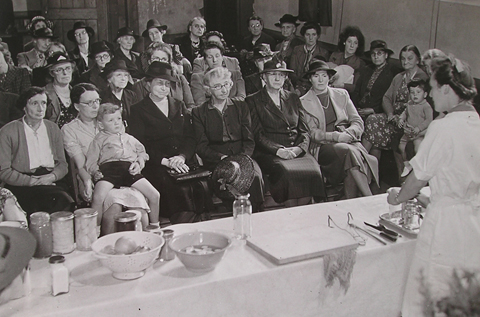
A hundred years ago, when it finally dawned that the Great War wasn’t going to end as quickly as many had hoped, a group of women decided to do what they could to help the war effort. The initial concept was to help revitalise rural communities and promote the role of women within them through education and training but the war soon added an extra string to their bow – that of producing and preserving food grown in Britain.
Today, a hundred years on, the institute can look back on a century where they have helped gain equality for women and asserted their rights.
In these activities, you will take your pupils through activities which mirror those of the WI.
Activity: Teaching New Skills to Others
Suitable for: Year 2 to Year 6
Learning Focus:
- Be able to explain a process or give instructions in a structured and clear manner.
- Use and understand the language of instructions.
Every one of us has a skill or a talent, whether it is in creative writing, sport, art or music. In this activity, the pupils will be able to showcase their talents, adding to their self-esteem and self-confidence and be able to teach it to others.
Ask the class to tell you what other members of the class are good at – this is a great introduction as it allows pupils to recognise the achievements of others. From this you should be able to draw up a list of skills and talents that the pupils should be able to teach to others.
Now ask them to prepare a short teaching session in which they will talk about their skill or talent, demonstrate an aspect of it to the rest of the class and then teach them how to do it. They need to consider the difficulty of the task and which is the best way to teach it – e.g. via verbal instructions or by demonstration. They’ll also need to allow time for the class to practise the skill or talent.
You should ask the pupil to assess their own performance first before asking the rest of the class to assess the teaching session.
The assessment should be based on the following criteria:
- Clarity of the instructions
- Ordering of instructions
- Rewording of instructions if the original is unclear
- Feedback from the pupils
Activity: Writing Instructions
Suitable for: Year 2 to Year 6
Learning Focus:
- Be able to explain a process or give instructions in a structured and clear manner.
- Use and understand the language of instructions.
One of the things that the Women’s Institute is renowned for is their culinary skills and in particular baking and preserving – skills that were vital for the food industry in the Great War.
For this activity, the pupils will compile a recipe book which you could sell to raise funds for school. It would be a great idea, and very relevant, if the recipes were traditional ones that may have been included in an original recipe book from a hundred years ago.
Many schools undertake this activity as a fundraiser but to make it educational, you should ask the pupils to get their parents or carers to help them make the recipe first. Then, in school, they should write the ingredients list out first then write instructions on how to make the food.
In the task, encourage them to use sequencing words to specify the order in which the instructions should be carried out, along with numbering of the steps.
Looking at examples of recipes beforehand will remind them that there are few adjectives used in the recipes but adverbs are used and imperative verbs. The idea is that you get straight to the point!



